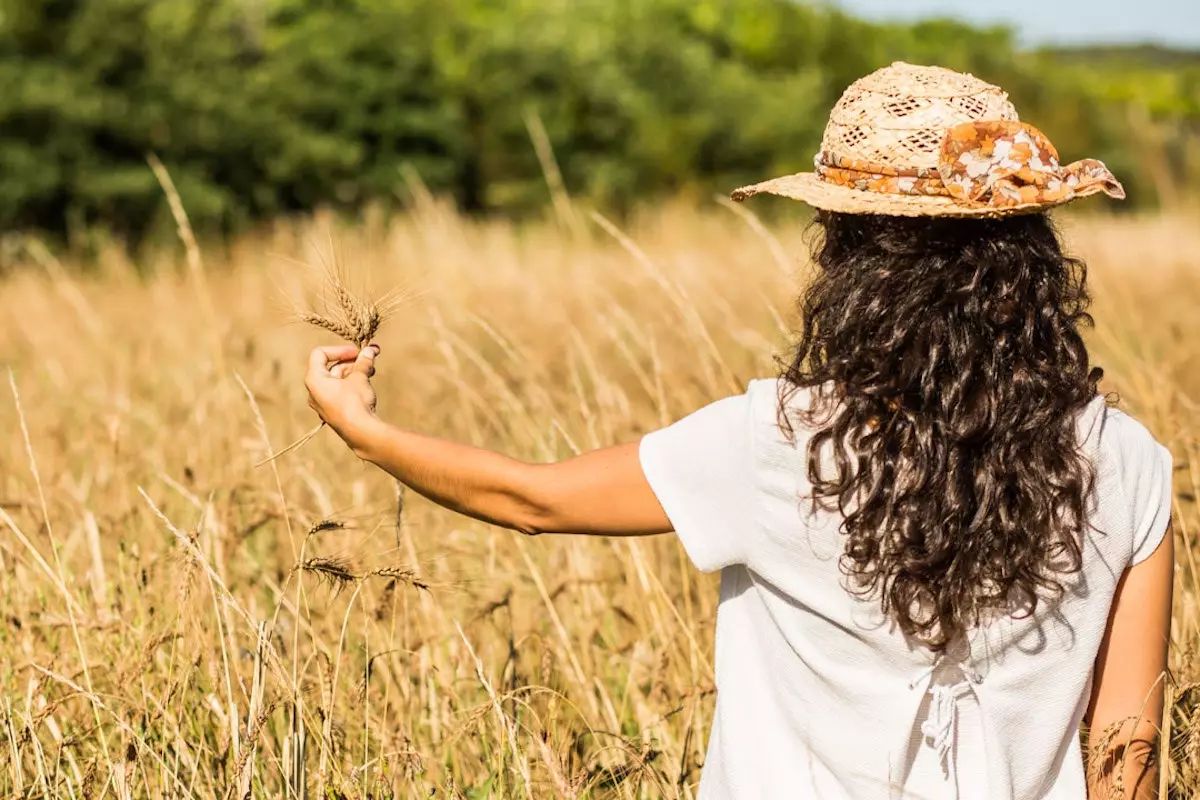
Alicia Benade, of Clean Wheat
Alicia Benade, Isabel Rivas, María Navarro and Mª Cruz Barón play a crucial role: all of them are fundamental pieces of a value chain that begins in the field and ends at our tables. We talked with them about changes of direction, the recovery of native cereals or the future of the bakery.
ALICIA BENADE DURÁN, FARMER (WHEAT AND CLEAN)
Alicia and her brother began, at Christmas 2017, to sow wheat Callobre in a family field of 900 square meters of her parish, Pexegueiro (Tui, Pontevedra) , where nothing was harvested for 20 years, encouraged by a “damn!” his grandmother in the form of anger. That day, she bought a baguette that after two hours was like a stone and threw it on the floor , complaining about low-quality wheat, frozen dough and the use of yeast or sugar that had nothing to do with the bread she ate in her youth: she longed for the taste and smell of those Galician breads, with their crunchy crust and crumbs. tender, made with natural ferment (mother dough) , forceful and prolonged kneading, high hydration and in a wood oven.
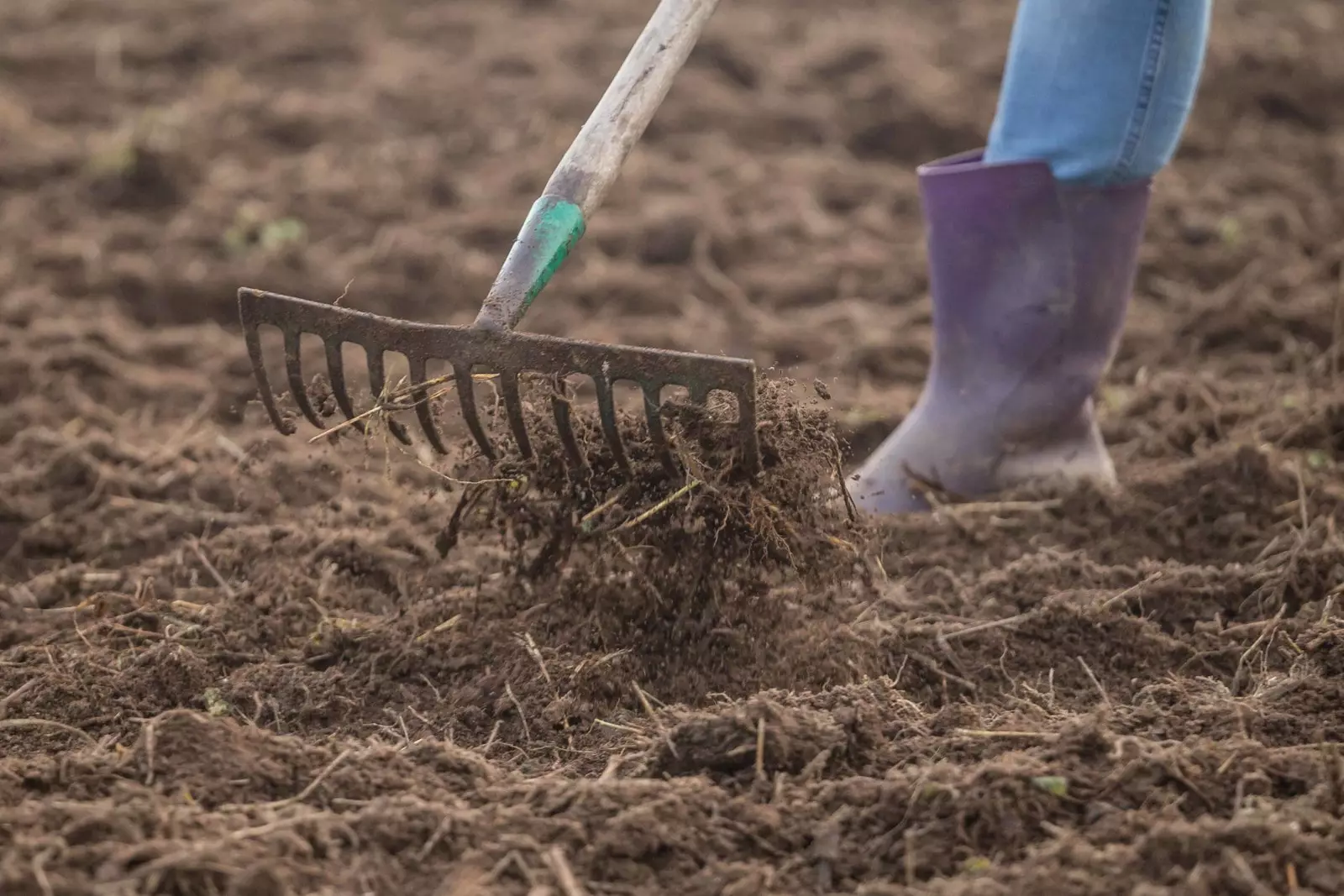
bread starts here
This, together with the fact that she expressed to her grandchildren the sorrow she felt seeing the land without working, made Alicia and her brother get down to work, supported by her father and Alicia's other brother. she. “The whole town turned around because we started with some fields of my uncles, who lived in Germany, but soon many neighbors gave us theirs, for us to clean them and cultivate them . In return, we pay them in kind.” Just then they learned that varieties of native wheat, called “country wheat” , through a research center that belongs to the Xunta de Galicia. “ They compiled more than 60 varieties to find the mother and father of Galician wheat ”. And they, now, work precisely with that callobre wheat , a seed of certified purity, with Protected Geographical Indication and that has not undergone modifications to be more productive.
“We registered as a farm and we did a first trial harvest, by hand, with limited resources. We ground those first 300 kilos in a registered mill, which bottled it for us. We made a design for the package, created a minimum viable product and took it to the Black Label Gourmet fair to see how crazy we were. We were very excited but we didn't know if it was going to work. We sold everything." This is how Wheat and Clean was born, their brand of artisanal Callobre wheat flour from their own cultivation (they already have 4 and a half hectares) , ground in a traditional wood and stone mill , with social, environmental and commercial awareness. “ We do not use chemical fertilizers or herbicides (nor later preservatives, additives or improvers) and although we do not have -yet- said certification because we have vineyards or cornfields next door and they do sulphate, we are convinced that the future is ecological”.
As for their product, they have clients from gourmet stores to restaurants, caterers, organic product stores or bakers . They also sell their flour online, on their website, in bags of 2 to 10 kilos or in packages of 500 grams.
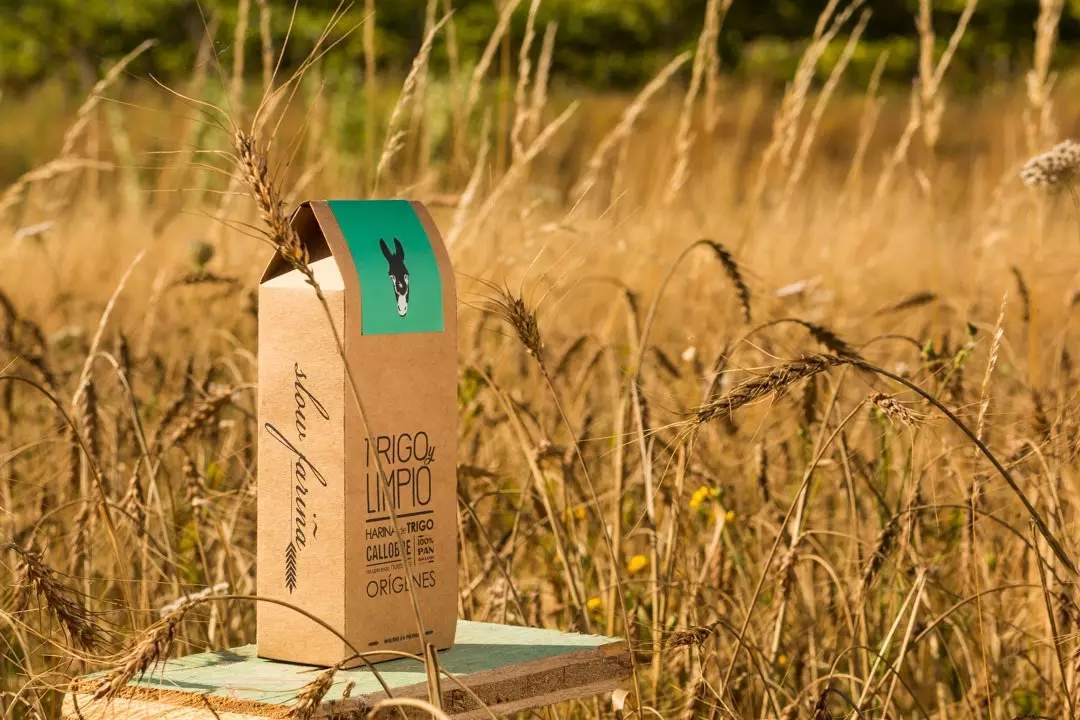
Trigo y Limpio sells its flour online
Now they harvest some 4,500 kilos per year , but Alicia insists: “this is not a business and we are not making gold, it is a limited production with which we try to cover expenses”. The Galician farmer, who studied Business Administration, worked in Valencia, in a company dedicated to ISO quality certifications and she left him to focus 100% on the family project her, but she now she combines it with another job. Her brother, an agricultural engineer, has a mechanics and electronics workshop. “Entrepreneurship is not easy,” he tells us.
ISABEL RIVAS, MOLINERA (ISABEL'S MILL)
Isabel's story is one of those that moves. She says that she started late, because she is about to turn 60 and she started six years ago, but her life project has shown that she never is. Elizabeth, with the help of Patricia, grinds Callobre wheat, Caaveiro, rye (from the area) and Segovian spelled in Cospeito (Lugo) to provide a service to the community. "I don't treat people like clients, but like friends." She takes care of her neighbors, doing something that she would never have imagined a few years ago: she returned home after several decades away and learned the milling trade so that the mill in her town would not disappear.
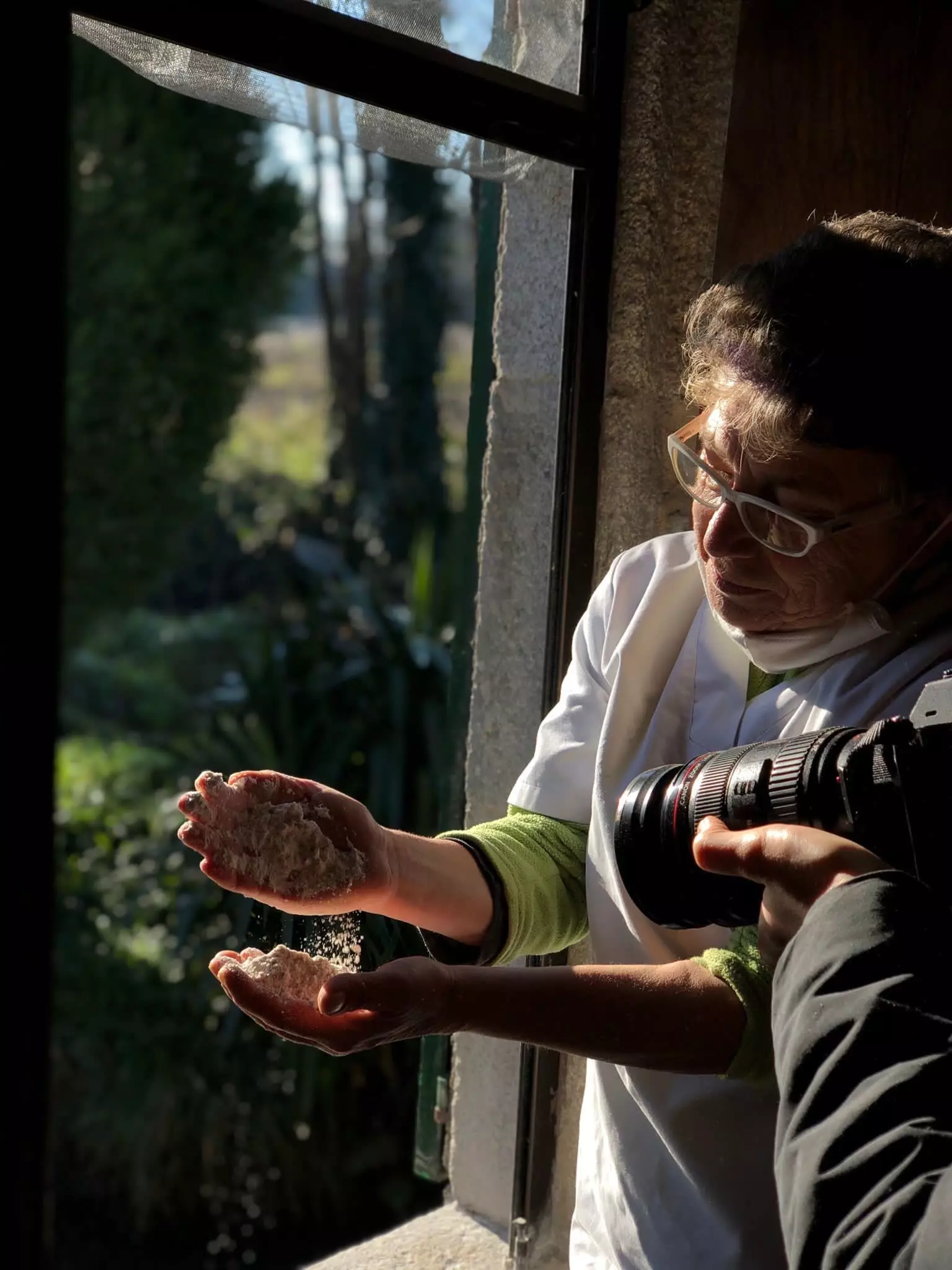
The miller Isabel Rivas
MARÍA NAVARRO, BAKERY (LA ARTESA, SEVILLE)
Is Self-taught baker, Barcelonan of Andalusian parents and based in Seville , belongs to that branch of bakers with no family tradition but who have converted to the trade.
She is a social integrator by profession, but at 27 she started making bread at home and everything changed. “I arrived because of interest in food sovereignty: I want to know what I am eating and where it comes from . I was also interested in social transformation through bread, returning to the neighborhood bakery because everything is depersonalized with large surfaces and the concern to offer the best is lost along the way. Also, I liked to make bread and I thought it was fun : I started making friends and then selling to organic consumer groups or local businesses.”
For four years, she has, together with her partner Nacho de Ella, who is an architect, a workshop with a shop in Seville, in the Los Arcos area, next to the Nervión, which has a lot of neighborhood life. “ I have worked in London, I have traveled a lot and I wanted to stay in a city with more light”.
In La Artesa they make loaves of Cereals of Andalusian varieties, such as Recio de Ronda wheat or Chamorro wheat, locally produced and organic (“the flours come from a stone mill in Malaga”) and with long fermentations between 18 and 24 hours . “It is very sustainable at all levels. The culture of traditional breads in the cities had disappeared and little by little it is returning. We want this to generate a local economy, that dignifies all parties, that the whole process be worthy for all”.
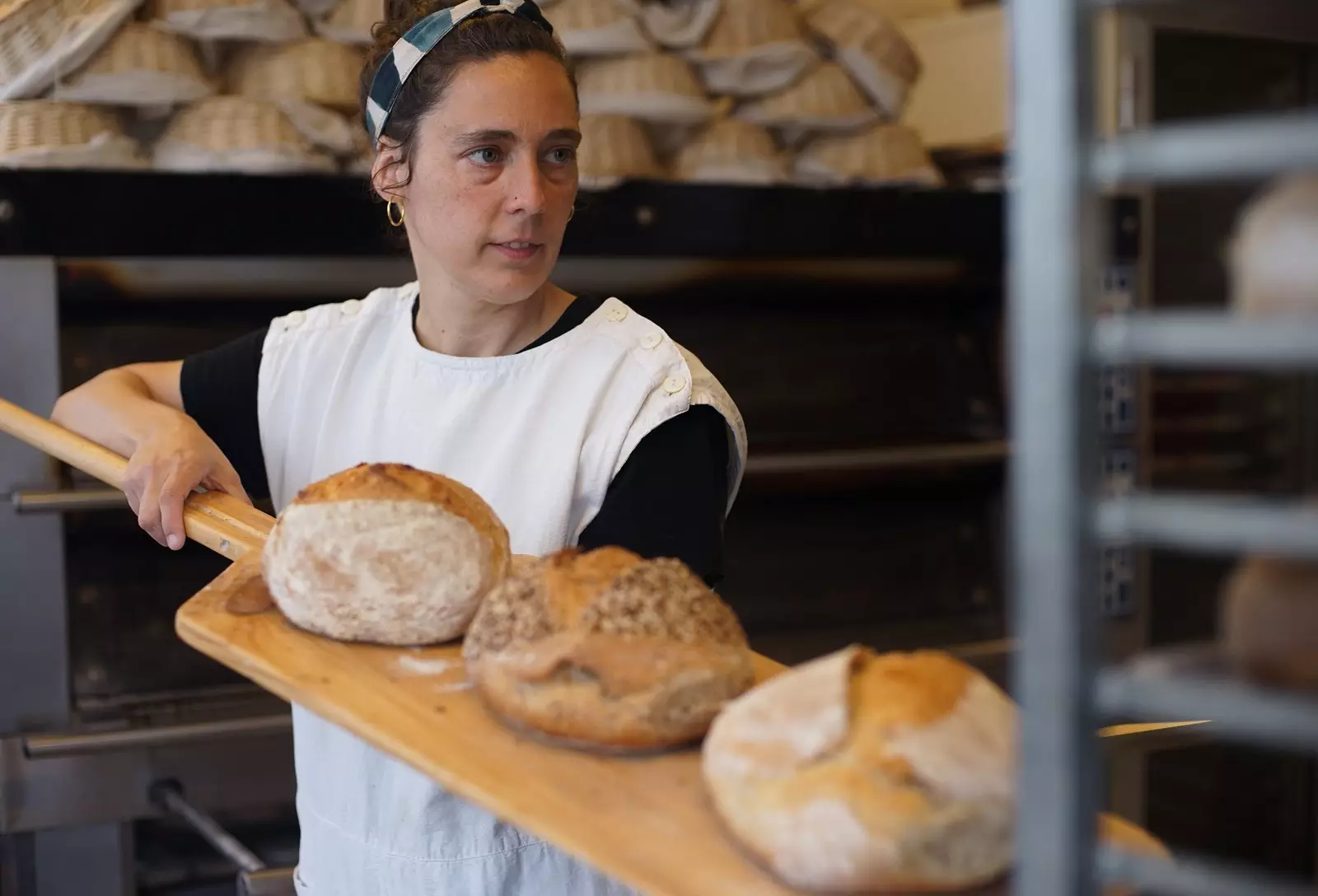
Maria Navarro, from La Artesa
They have loaves and, every week, different special breads: carob and raisins, pumpkin with sunflower seeds or olives with oregano. also muffins (which instead of lard have olive oil), muffins, brioches, biscuits, brownies or cinnamon rolls.
While she tells us about the day to day of the bakery, she recognizes that there are still many suppliers who come to the bakery and go directly to her colleague. Or customers who want to know something specific about bread. “ There are many small things from day to day. Visibility is needed in this world because it is very male”.
MARI CRUZ BARÓN, TEACHER (ASSISTANT DIRECTOR OF THE BAKING SCHOOL OF SABADELL, BARCELONA)
“I came to the world of bread out of curiosity… and by chance. My parents had a restaurant bar and I studied cooking to work with them, but when they retired we decided not to continue with the business”. It was then that Mari Cruz continued training, took a bakery course... and fell in love . “It seemed to me a very creative and magical world, because the masses are totally anarchic and they are alive. I was also lucky to have very good teachers: Xavi Barriga, Xevi Ramon and Manel Cortés”.
And the student became a teacher, after working for 3 years in an artisan bakery. “ The school is very nice but the reality is the workshop".
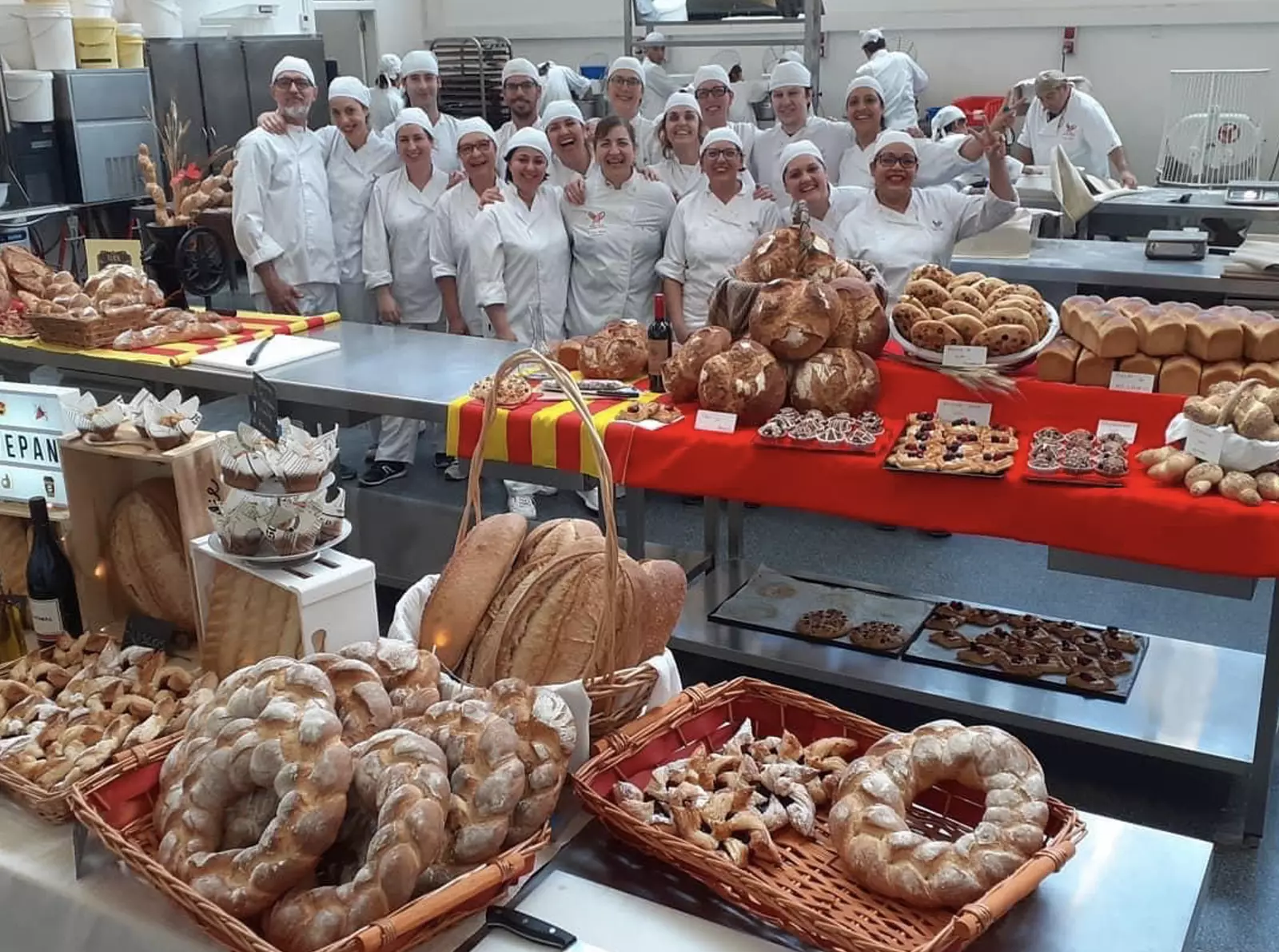
Learning, the last step
She is now deputy director of the Baking School, a project of the Guild of Bakers of the province of Barcelona. “Five years ago Yohan Ferrant entered as director and we took a leap towards excellence”. Although their training offer is based on introductory courses and professional certificates, they also have a Master of Artisan Bakery for professionals of 10 weeks , specific courses for bakers who want to specialize in a product or technique, and masterclasses with renowned experts. "The future of the bakery is assured: we have more than 1,000 students a year".
Mari Cruz has been in the profession for almost 20 years and the last 14, dedicated to training . She has seen how, little by little, things have been changing. “When I started studying and collaborating with the union, everyone thought that I, being a woman, only dispatched, they did not understand that I made bread. I missed them, because it was not usual. Now there is less and less distinction, we have more and more presence and it is more common, it is normalizing”.
